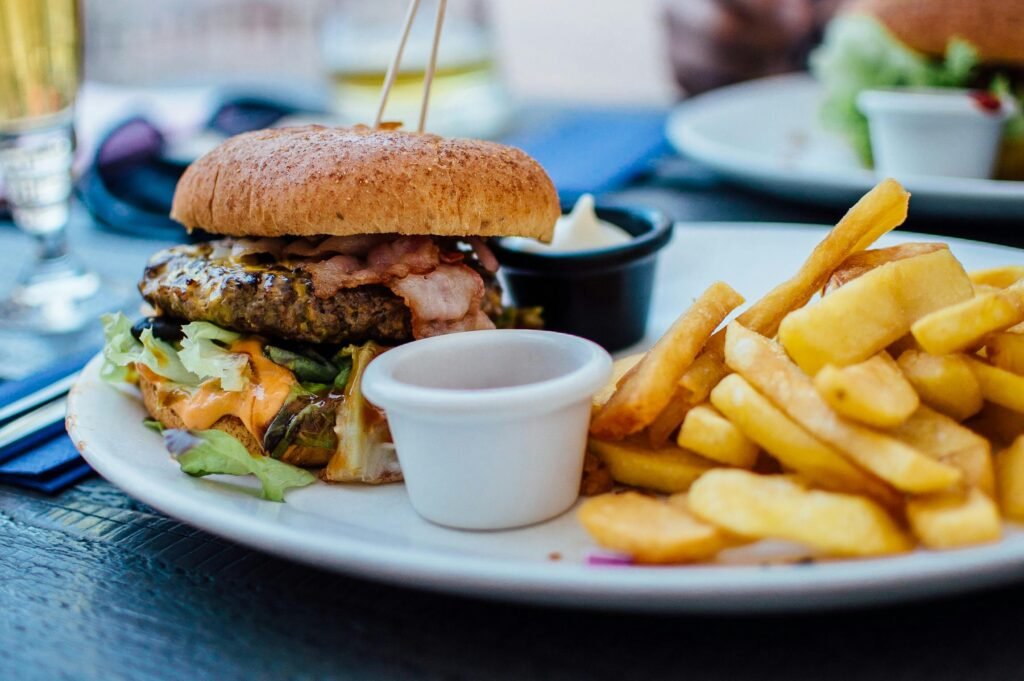

A cheat meal means eating something outside your regular diet—like biryani, pizza, burgers, sweets, or any comfort food you enjoy. It’s usually taken once a week or once in a while, not as a daily habit.
When is a Cheat Meal Healthy?
A cheat meal is healthy when it’s:
- Planned in advance
- Limited to 1–2 times per week
- Within your calorie range
- Combined with consistent workouts
In this case, it won’t harm your progress—it may even help you stay fit, both physically and mentally.
Benefits of a Cheat Meal
- Reduces stress – Constant dieting can feel mentally exhausting. Cheat meals give a psychological break.
- Improves consistency – Knowing you have a “reward meal” can help you stick to your plan longer.
- Boosts metabolism – A cheat meal can temporarily increase metabolism and stimulate fat-burning hormones.
- Resets leptin hormone – Leptin regulates fat loss; cheat meals can help restore this function.
- Increases motivation – When enjoyed mindfully, it refreshes your mindset toward dieting.
When Does a Cheat Meal Become Unhealthy?
- When cheat meals turn into cheat days or weeks
- When you eat junk food frequently without portion control
- When you say “I’ll start again tomorrow” but never do
- When it becomes an excuse to break healthy habits
Risks of Overdoing Cheat Meals
- Weight gain from excess calories and fat
- Water retention & bloating
- Insulin resistance from blood sugar spikes
- Loss of motivation and feelings of guilt
- Difficulty returning to your healthy diet routine
Smart Cheat Meal Tips
- Take one cheat meal, not an entire day
- Keep other meals clean and healthy that day
- Exercise the same day (preferably cardio)
- Hydrate well to reduce bloating
- Enjoy your food without guilt
- Plan your next clean meal in advance
A cheat meal is not a sin — it’s a strategy.
Used wisely, it won’t harm your fat-loss journey. Instead, it can restore motivation, balance hormones, and make your plan sustainable.
Balance is everything—eat smart, stay fit, and enjoy the journey.
